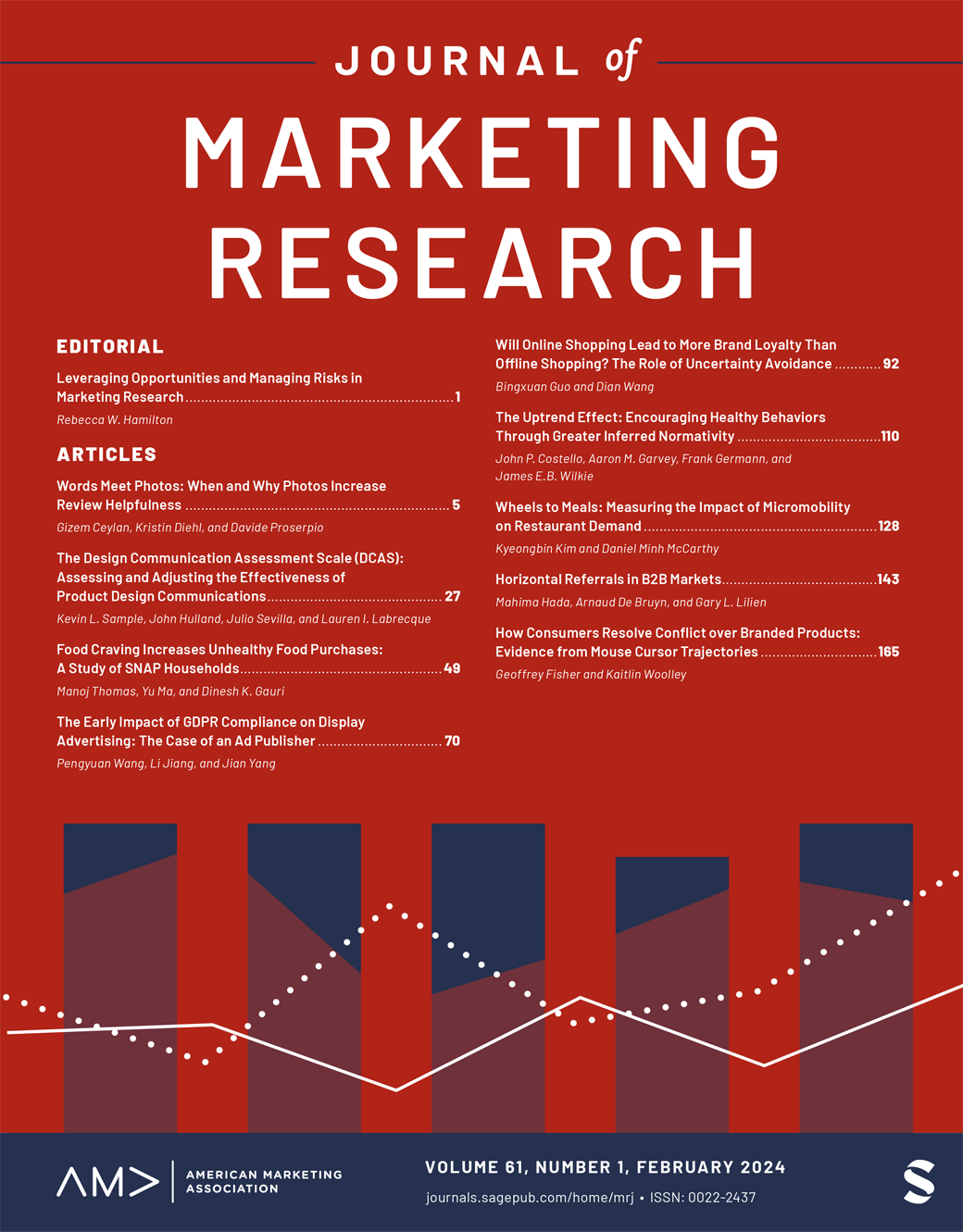EXPRESS: Soda Taxes and Marketing Conduct
IF 5
1区 管理学
Q1 BUSINESS
引用次数: 0
Abstract
Soda taxes are an increasingly popular policy tool that discourages purchases of sugar-sweetened beverages. This study analyzes how emphasis on marketing conduct elements and their effectiveness might change after soda tax introductions. Prior studies on the effect of soda taxes focus on price increases but neglect other, relevant marketing conduct tools, i.e., promotional frequency, promotional discount depth, and feature promotion frequency. This study documents the changes to marketing conduct elements and their effectiveness due to the introduction of soda tax across more than 200 retail stores in five markets. Findings related to price changes are consistent with prior literature; in addition, the study reveals a substantial, hitherto overlooked decrease in promotional frequency (-2%), promotional depth (-12%), and feature promotion frequency (-14%) compared with matched control markets, exacerbating the tax’s negative sales effect. Introducing a soda tax also considerably influences the marketing conduct’s effectiveness, such that consumers become less sensitive to changes in regular price, feature promotions, and the depth of the promotional discount but respond more to the presence of promotions. Importantly, marketing conduct and effectiveness changes do not align (e.g., while consumers become more sensitive to promotion frequency, managers often reduce them), a relevant insight for policymaking.EXPRESS:苏打税和营销行为
汽水税是一种越来越受欢迎的政策工具,它阻止人们购买含糖饮料。本研究分析了汽水税引入后,市场营销行为要素的重视程度及其有效性可能发生的变化。以往对汽水税影响的研究主要集中在价格上涨上,而忽略了其他相关的营销行为工具,如促销频率、促销折扣深度和特色促销频率。这项研究记录了由于在五个市场的200多家零售商店中引入苏打税而导致的营销行为要素的变化及其有效性。与价格变化相关的研究结果与先前文献一致;此外,该研究还揭示了与匹配的控制市场相比,促销频率(-2%)、促销深度(-12%)和特色促销频率(-14%)的大幅下降(迄今为止被忽视),加剧了税收的负面销售效应。引入汽水税也会极大地影响营销行为的有效性,例如,消费者对常规价格、特色促销和促销折扣的深度变化变得不那么敏感,但对促销活动的存在反应更强烈。重要的是,营销行为和有效性的变化并不一致(例如,当消费者对促销频率变得更加敏感时,管理者往往会减少促销频率),这是政策制定的相关见解。
本文章由计算机程序翻译,如有差异,请以英文原文为准。
求助全文
约1分钟内获得全文
求助全文
来源期刊

Journal of Marketing Research
BUSINESS-
CiteScore
10.30
自引率
6.60%
发文量
79
期刊介绍:
JMR is written for those academics and practitioners of marketing research who need to be in the forefront of the profession and in possession of the industry"s cutting-edge information. JMR publishes articles representing the entire spectrum of research in marketing. The editorial content is peer-reviewed by an expert panel of leading academics. Articles address the concepts, methods, and applications of marketing research that present new techniques for solving marketing problems; contribute to marketing knowledge based on the use of experimental, descriptive, or analytical techniques; and review and comment on the developments and concepts in related fields that have a bearing on the research industry and its practices.
 求助内容:
求助内容: 应助结果提醒方式:
应助结果提醒方式:


